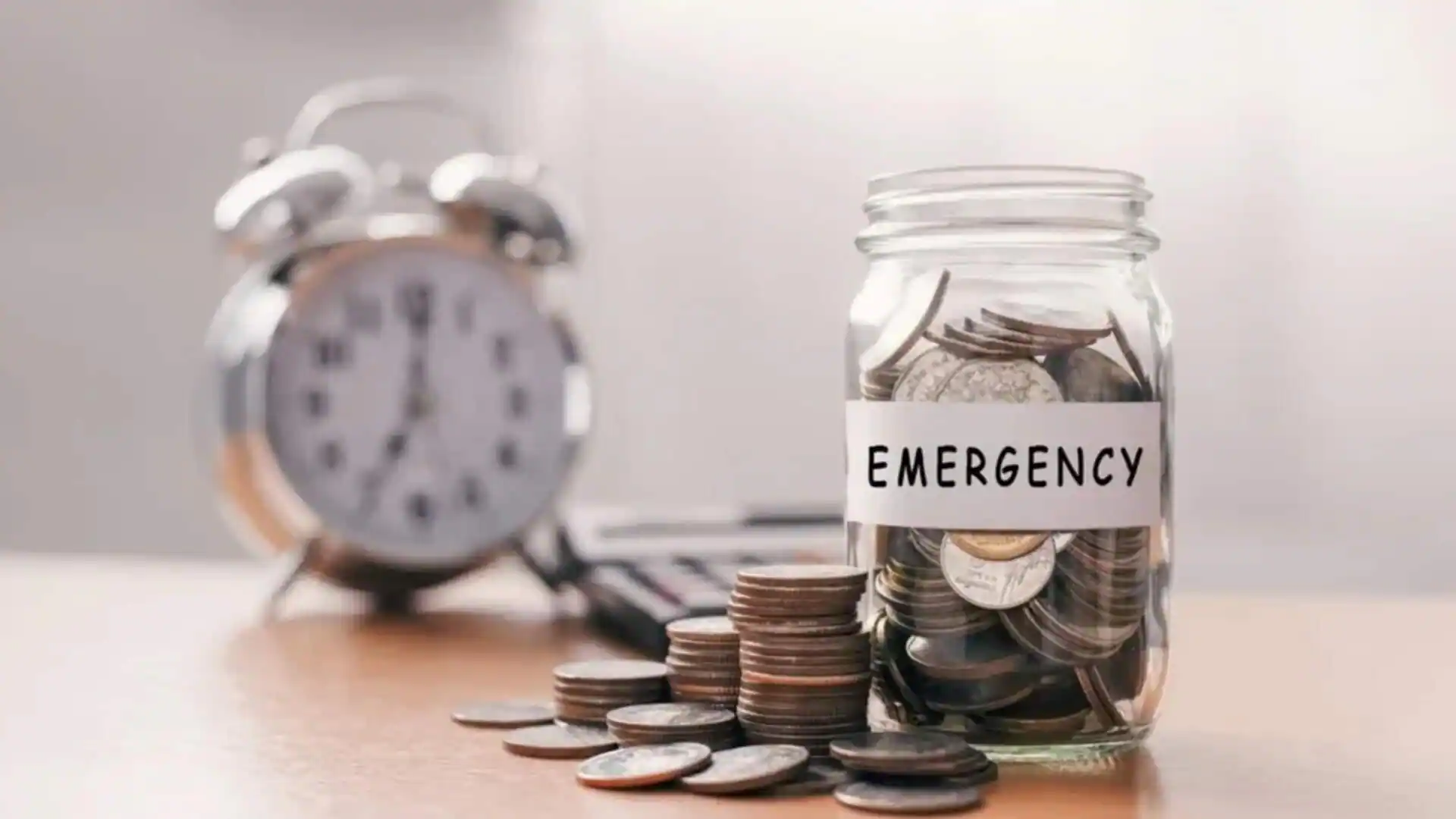Life has a knack for throwing curveballs when you least expect them. One moment, everything is going smoothly, and the next, you’re facing a surprise car repair, an unexpected medical bill, or a sudden job loss. While you can’t predict the future, you can prepare for it. Building an emergency fund is one of the most powerful steps you can take to protect yourself and your family from financial hardship.
Having a dedicated savings buffer offers more than just money in the bank; it provides peace of mind. It’s the financial safety net that allows you to handle unexpected events without derailing your long-term goals or resorting to high-interest debt. This guide will walk you through why an emergency fund is essential, how much you should save, and the practical steps you can take to start building yours today.
What Is an Emergency Fund?
An emergency fund is a stash of cash set aside specifically for unforeseen financial challenges. Its primary purpose is to cover essential living expenses when your regular income is disrupted or when you face a large, unexpected cost.
It’s important to distinguish an emergency fund from other types of savings. This is not money for a vacation, a down payment on a house, or investments in the stock market. An emergency fund must be liquid, meaning you can access it quickly and easily when you need it most. Unlike investments, its goal isn’t to grow your wealth but to provide stability and security during a crisis. Think of it as your personal financial insurance policy.
Why You Need an Emergency Fund
Life is unpredictable, and having a financial cushion can make all the difference when things go wrong. Here are some of the most common reasons why an emergency fund is a non-negotiable part of a healthy financial plan.
- Unexpected Job Loss: Losing your job can be a stressful and destabilizing experience. An emergency fund gives you breathing room to cover your bills and essential living costs while you search for new employment, without the added pressure of mounting debt.
- Medical Emergencies: Even with health insurance, an unexpected illness or injury can result in significant out-of-pocket costs from deductibles, co-pays, or treatments not fully covered. An emergency fund ensures you can prioritize your health without worrying about the financial fallout.
- Urgent Home or Car Repairs: A leaky roof, a broken furnace, or a major car transmission failure can happen without warning. These repairs are often expensive and can’t be postponed. Your emergency savings allow you to address these issues promptly without having to rely on credit cards.
- Other Unforeseen Circumstances: Life is full of surprises, from needing to book a last-minute flight for a family emergency to replacing a broken refrigerator. An emergency fund acts as a buffer for any number of unexpected events that could otherwise strain your finances.
How Much Should You Save?
The standard rule of thumb is to save three to six months’ worth of essential living expenses in your emergency fund. This should be enough to cover your core needs, such as housing, utilities, food, transportation, and minimum debt payments.
However, the ideal amount can vary based on your personal circumstances. Consider these factors when deciding on your goal:
- Job Security: If you work in a volatile industry or have an irregular income (like a freelancer), aiming for six months of expenses or more provides a larger safety net.
- Health: If you or a dependent have chronic health conditions, a larger fund can help cover potential medical costs.
- Dependents: If you have children or other family members who rely on your income, a more substantial emergency fund is advisable.
If you’re just starting, don’t let the three-to-six-month goal intimidate you. Begin with a smaller, more achievable target, like saving your first $1,000.
Where to Keep Your Emergency Fund
The best place for your emergency fund is somewhere it is both safe and accessible. You need to be able to get to your money quickly, but you also want it separate from your daily checking account to avoid the temptation of spending it on non-emergencies.
- High-Yield Savings Accounts: These are often the best option. They are offered by many online banks and provide a higher interest rate than traditional savings accounts, allowing your money to grow slightly while remaining completely liquid. They are FDIC-insured, so your money is protected.
- Money Market Accounts: Similar to high-yield savings accounts, money market accounts offer competitive interest rates and easy access to your funds, often with check-writing privileges or a debit card.
The key is to prioritize liquidity and safety over high returns. Avoid keeping your emergency fund in riskier investments like stocks, as their value can drop right when you need the money most.
How to Build Your Emergency Fund
Building your emergency fund takes time and discipline, but every small step makes a difference.
- Start Small and Set Realistic Goals: If saving thousands feels impossible, start with $20 per paycheck. The key is to build the habit.
- Automate Your Savings: The easiest way to save consistently is to “pay yourself first.” Set up an automatic transfer from your checking account to your high-yield savings account each payday.
- Reduce Unnecessary Expenses: Track your spending for a month to identify areas where you can cut back. Could you cancel a subscription you don’t use or dine out less often? Redirect that money to your emergency fund.
- Use Windfalls Wisely: If you receive a tax refund, a bonus from work, or a cash gift, resist the urge to splurge. Use at least a portion of it to boost your emergency savings.
Common Mistakes to Avoid
As you build your fund, be mindful of these common pitfalls:
- Dipping into the fund for non-emergencies: A weekend sale or a vacation is not an emergency. Be strict with yourself about what constitutes a true emergency.
- Not replenishing after use: If you have to use your fund, make it a priority to build it back up as quickly as possible.
- Keeping it in a risky investment: Don’t chase high returns with your safety net. Keep it safe and accessible.
Maintaining and Growing Your Fund
Your emergency fund isn’t a “set it and forget it” account. As your life changes, so should your fund.
- Periodically review your savings goal: Once a year, re-evaluate your monthly expenses. If your rent or insurance has increased, you’ll need to adjust your savings target accordingly.
- Increase your fund as your income grows: When you get a raise or a higher-paying job, increase the amount you’re automatically saving. This helps you avoid lifestyle inflation and strengthens your financial security.
Frequently Asked Questions
What counts as a real emergency?
A true emergency is an unexpected, essential expense that you cannot avoid. This typically includes job loss, medical crises, urgent home or car repairs, or necessary travel for a family emergency. It is not for planned expenses or discretionary wants.
Should I pay off debt or build an emergency fund first?
Financial experts often recommend a balanced approach. Start by saving a small emergency fund of $500 to $1,000. This provides a small cushion while you aggressively pay down high-interest debt like credit cards. Once that debt is gone, shift your focus to building your full three-to-six-month emergency fund.
What if I have to use my emergency fund?
That’s what it’s there for! Don’t feel guilty about using it for a genuine emergency. Once the crisis has passed, create a plan to replenish the fund as quickly as you can by re-prioritizing your savings.
Start Building Your Financial Security Today
An emergency fund is the bedrock of a solid financial foundation. It’s the tool that empowers you to navigate life’s inevitable challenges with confidence instead of fear. By preparing for the unexpected, you protect not only your finances but also your peace of mind.
Don’t wait for a crisis to strike. Take the first step today, no matter how small it may seem. Open a dedicated savings account, set up an automatic transfer, and begin building the financial security you deserve. Your future self will thank you.




